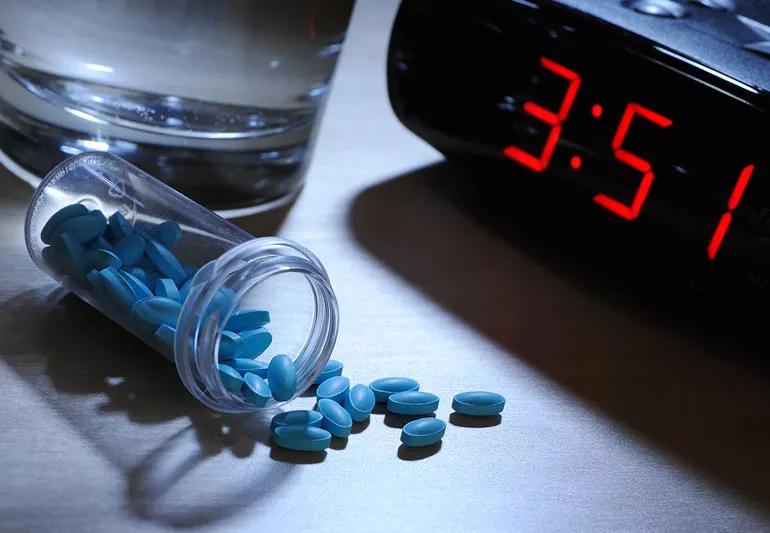Does this supplement help you get more ZZZs?

Image content: This image is available to view online.
View image online (https://assets.clevelandclinic.org/transform/d5ab00af-b798-4ea4-ae3e-31cb04ce681b/melatoninSleepPills-157524161-770x553-1_jpg)
sleeping pills on bedside table with clock and glass of water
If you have insomnia, counting sheep won’t help you fall asleep or stay asleep. With so many over-the-counter sleep aids, which is best? If you’re among the many people wondering if melatonin can help you sleep more solidly, it’s important to understand how this popular supplement works.
Advertisement
Cleveland Clinic is a non-profit academic medical center. Advertising on our site helps support our mission. We do not endorse non-Cleveland Clinic products or services. Policy
This light-sensitive hormone, produced by your brain’s pineal gland, partially controls your body’s sleep-wake cycle. We asked sleep specialist Michelle Drerup, MD, about melatonin and insomnia.
If you’re experiencing insomnia lately, it turns out you’re not alone. Insomnia affects millions of people. The American Academy of Sleep Medicine reports that:
“Scientists are just beginning to understand how well melatonin supplements work for different sleep problems, and when and how much you should take,” says Dr. Drerup. Research is ongoing. But we do know that taking melatonin for short periods of time — meaning days or weeks — is better than a placebo for sleep onset insomnia, or difficulty initially falling asleep.
Melatonin supplements may improve your sleep if you have disrupted circadian rhythms (from jet lag or working the night shift, for example). Melatonin can also be helpful if you are more of a “night owl” and feel more productive and alert in the evening/night.
Advertisement
Melatonin isn’t one of those one-size-fits-all types of things. For melatonin to be helpful, it’s important to tailor your dose, how you take it and the time of day to your specific sleep problem. “Taking it at the ‘wrong’ time of day may actually make your sleep disorder worse,” warns Dr. Drerup.
It’s best to start with very low doses of melatonin. “Keep the dose close to the amount that your body normally produces. That’s less than 0.3 mg per day,” she advises. “You should only use the lowest amount possible to achieve the desired effect.”
When it comes to melatonin, it’s best not to go it alone. Melatonin works differently for everyone, and doctor recommendations vary based on your diagnosis and sleep history. With chronic conditions like insomnia or other similar sleep disorders, it’s best to see a sleep specialist to get a correct diagnosis and consider cognitive behavioral therapy or other treatments. The right dose of melatonin should produce restful sleep, with no daytime irritability or fatigue.
Advertisement

Sign up for our Health Essentials emails for expert guidance on nutrition, fitness, sleep, skin care and more.
Learn more about our editorial process.
Advertisement
Tart cherry juice contains natural compounds that may support better sleep
Melatonin won’t stop birth control from doing its job, but the combo could cause unwanted side effects
This sleep supplement may have side effects, but dependency isn’t one
Too much of the supplement can lead to an upset stomach, vomiting and diarrhea
An expert explores the potential connections
This hormone helps your body prepare for sleep
What to expect after taking this increasingly popular sleep aid
The short answer from a sleep specialist
Prioritize your health by managing stress, strengthening your social connections and getting quality sleep
Bolsters, blankets, pillows and blocks can offer extra support, stability and comfort
Allergies, postnasal drip, asthma or reflux could be to blame for a cough that won’t quit